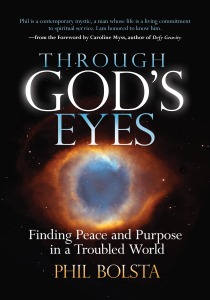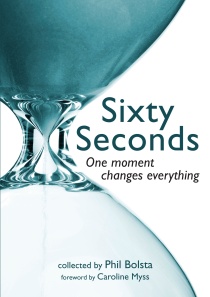 This thought-provoking article by Lori Gottlieb appeared in The Atlantic online on June 17, 2011. I agree that parents can unintentionally hinder their children’s growth by being too loving—but only if they don’t practice tough love at the same time. That said, I’m convinced that parents need to follow four ironclad rules:
This thought-provoking article by Lori Gottlieb appeared in The Atlantic online on June 17, 2011. I agree that parents can unintentionally hinder their children’s growth by being too loving—but only if they don’t practice tough love at the same time. That said, I’m convinced that parents need to follow four ironclad rules:
1) Love and cherish your kids unconditionally.
2) Hold your kids accountable for their words and their actions.
3) Demand that your kids fulfill their obligations, from honoring their promises to completing their homework assignments to pitching in with the household chores. No excuses accepted.
4) Allow your kids to fall flat on their faces. Only rescue them from the gravest of situations, and pause before doing so even then.
Click here to listen to Lori Gottlieb’s audio interview on Minnesota Public Radio. Click here to watch Lori in a four-minute video. Or read her article below:
HOW TO LAND YOUR KID IN THERAPY
Why the obsession with our kids’ happiness may be dooming them to unhappy adulthoods. A therapist and mother reports.
IF THERE’S ONE thing I learned in graduate school, it’s that the poet Philip Larkin was right. (“They f*** you up, your mum and dad, / They may not mean to, but they do.”) At the time, I was a new mom with an infant son, and I’d decided to go back to school for a degree in clinical psychology. With baby on the brain and term papers to write, I couldn’t ignore the barrage of research showing how easy it is to screw up your kids. Of course, everyone knows that growing up with “Mommy Dearest” produces a very different child from one raised by, say, a loving PTA president who has milk and homemade cookies waiting after school. But in that space between Joan Crawford and June Cleaver, where most of us fall, it seemed like a lot could go wrong in the kid-raising department.
As a parent, I wanted to do things right. But what did “right” mean? One look in Barnes & Noble’s parenting section and I was dizzy: child-centered, collaborative, or RIE? Brazelton, Spock, or Sears?
The good news, at least according to Donald Winnicott, the influential English pediatrician and child psychiatrist, was that you didn’t have to be a perfect mother to raise a well-adjusted kid. You just had to be, to use the term Winnicott coined, a “good-enough mother.” I was also relieved to learn that we’d moved beyond the concept of the “schizophrenogenic mother,” who’s solely responsible for making her kid crazy. (The modern literature acknowledges that genetics—not to mention fathers—play a role in determining mental health.) Still, in everything we studied—from John Bowlby’s “attachment theory” to Harry Harlow’s monkeys, who clung desperately to cloth dummies when separated from their mothers—the research was clear: fail to “mirror” your children, or miss their “cues,” or lavish too little affection on them, and a few decades later, if they had the funds and a referral, they would likely end up in one of our psychotherapy offices, on the couch next to a box of tissues, recounting the time Mom did this and Dad didn’t do that, for 50 minutes weekly, sometimes for years.
Our main job as psychotherapists, in fact, was to “re-parent” our patients, to provide a “corrective emotional experience” in which they would unconsciously transfer their early feelings of injury onto us, so we could offer a different response, a more attuned and empathic one than they got in childhood.
At least, that was the theory. Then I started seeing patients.
MY FIRST SEVERAL patients were what you might call textbook. As they shared their histories, I had no trouble making connections between their grievances and their upbringings. But soon I met a patient I’ll call Lizzie. Imagine a bright, attractive 20-something woman with strong friendships, a close family, and a deep sense of emptiness. She had come in, she told me, because she was “just not happy.” And what was so upsetting, she continued, was that she felt she had nothing to be unhappy about. She reported that she had “awesome” parents, two fabulous siblings, supportive friends, an excellent education, a cool job, good health, and a nice apartment. She had no family history of depression or anxiety. So why did she have trouble sleeping at night? Why was she so indecisive, afraid of making a mistake, unable to trust her instincts and stick to her choices? Why did she feel “less amazing” than her parents had always told her she was? Why did she feel “like there’s this hole inside” her? Why did she describe herself as feeling “adrift”?
I was stumped. Where was the distracted father? The critical mother? Where were the abandoning, devaluing, or chaotic caregivers in her life?
As I tried to make sense of this, something surprising began happening: I started getting more patients like her. Sitting on my couch were other adults in their 20s or early 30s who reported that they, too, suffered from depression and anxiety, had difficulty choosing or committing to a satisfying career path, struggled with relationships, and just generally felt a sense of emptiness or lack of purpose—yet they had little to quibble with about Mom or Dad.
Instead, these patients talked about how much they “adored” their parents. Many called their parents their “best friends in the whole world,” and they’d say things like “My parents are always there for me.” Sometimes these same parents would even be funding their psychotherapy (not to mention their rent and car insurance), which left my patients feeling both guilty and utterly confused. After all, their biggest complaint was that they had nothing to complain about!
At first, I’ll admit, I was skeptical of their reports. Childhoods generally aren’t perfect—and if theirs had been, why would these people feel so lost and unsure of themselves? It went against everything I’d learned in my training.
But after working with these patients over time, I came to believe that no florid denial or distortion was going on. They truly did seem to have caring and loving parents, parents who gave them the freedom to “find themselves” and the encouragement to do anything they wanted in life. Parents who had driven carpools, and helped with homework each night, and intervened when there was a bully at school or a birthday invitation not received, and had gotten them tutors when they struggled in math, and music lessons when they expressed an interest in guitar (but let them quit when they lost that interest), and talked through their feelings when they broke the rules, instead of punishing them (“logical consequences” always stood in for punishment). In short, these were parents who had always been “attuned,” as we therapists like to say, and had made sure to guide my patients through any and all trials and tribulations of childhood. As an overwhelmed parent myself, I’d sit in session and secretly wonder how these fabulous parents had done it all.
Until, one day, another question occurred to me: Was it possible these parents had done too much?
Here I was, seeing the flesh-and-blood results of the kind of parenting that my peers and I were trying to practice with our own kids, precisely so that they wouldn’t end up on a therapist’s couch one day. We were running ourselves ragged in a herculean effort to do right by our kids—yet what seemed like grown-up versions of them were sitting in our offices, saying they felt empty, confused, and anxious. Back in graduate school, the clinical focus had always been on how the lack of parental attunement affects the child. It never occurred to any of us to ask, what if the parents are too attuned? What happens to those kids?
Click here to view all my posts about parenting.
ABOUT PHIL BOLSTA

If you feel more stressed than blessed . . . if you have more confusion than clarity about how to live your beliefs . . . if you long to live a richer, happier, more meaningful life . . . you will find a wealth of insight and guidance in Through God’s Eyes: Finding Peace and Purpose in a Troubled World.
Through God’s Eyes is a road map for living a more peaceful, beautiful life. It’s the only book that explains how dozens of spiritual principles interact, how to weave them together into a cohesive worldview, and how to practically apply this spiritual wisdom to daily life.
Readers everywhere are discovering that when you challenge yourself to look through God’s eyes, the world around you changes, and so do you.
Who will benefit from reading Through God’s Eyes?
Anyone who is on a spiritual path, or wants to be.
Anyone who loves life, or wants to learn how to.
Anyone who is happy, or wants to be happier.
Click here to order your copy of Through God’s Eyes from GodsEyesAmazon.com.
For an inscribed copy, click here to e-mail Phil for information.
Click here to visit the Through God’s Eyes website.
Click on the link below to download a FREE 28-page chapter!
SEE EVERY MOMENT AS A GIFT
Click here to read endorsements from authors and thought leaders.
Click here to read unsolicited testimonials from readers.
Click here to ask Phil to add you to his e-mail list for updates on his blog and books.
Here is a two-minute video introduction to Through God’s Eyes.

Like to learn more about Through God’s Eyes? Here is a free 44-page PDF sampler from the book that includes:
• an overview of the book
• the complete table of contents
• the Foreword by Caroline Myss
• my Introduction
• chapter excerpts
• a sample end-of-chapter story
• endorsements from authors and thought leaders
Just click on the link below to download your free PDF sampler!
THROUGH GOD’S EYES PDF SAMPLER

Schedule a Mastery Mentoring phone session with Phil to learn how to apply principles of spiritual living more effortlessly and effectively. Priced affordably! Click here to e-mail Phil for details.

Phil’s eBook, The Logic of Living a Spiritual Life: Supporting a Life of Faith Through Logic and Reason, is now available for 99 cents.
Order it at GodIsLogical.com.
In this eBook, you’ll find answers to questions like:
• What is the cornerstone of a spiritual life, and why?
• What is the secret to liberating yourself from other people’s judgments and expectations?
• How do you reconcile the “free will vs. Divine Will” conundrum?
• Why is there an exception to “Everything happens for a reason”?
Those who worship logic instead of God are only half right. Not only is it logical to believe in God and to live a faith-based life, the existence of a loving, benevolent God that governs all creation is perhaps the only systematic worldview that explains every aspect of life.
 Phil is also the author of Sixty Seconds: One Moment Changes Everything, a collection of 45 inspiring, life-changing stories from prominent authors and thought leaders he interviewed. The roster of storytellers includes Wayne Dyer, Deepak Chopra, Neale Donald Walsch, Caroline Myss, Larry Dossey, Rachel Naomi Remen, Bernie Siegel, Dean Ornish, and Christiane Northrup. Sixty Seconds has been translated into four languages: Italian, German, Spanish, and Portuguese. Reading this book is like spending a few minutes face to face with each of the contributors and listening to their personal stories.
Phil is also the author of Sixty Seconds: One Moment Changes Everything, a collection of 45 inspiring, life-changing stories from prominent authors and thought leaders he interviewed. The roster of storytellers includes Wayne Dyer, Deepak Chopra, Neale Donald Walsch, Caroline Myss, Larry Dossey, Rachel Naomi Remen, Bernie Siegel, Dean Ornish, and Christiane Northrup. Sixty Seconds has been translated into four languages: Italian, German, Spanish, and Portuguese. Reading this book is like spending a few minutes face to face with each of the contributors and listening to their personal stories.
Click here to order Sixty Seconds.
Learn more by visiting the official Sixty Seconds website.
Click here to read unsolicited testimonials from readers.
Here is a three-minute video introduction to Sixty Seconds.
June 18, 2011 at 5:02 AM
Thanks for this post, Phil. It makes me feel more normal. :)
June 18, 2011 at 5:10 AM
I’m glad to hear that, Alyssa, although I’m not exactly sure what “normal” is anymore!